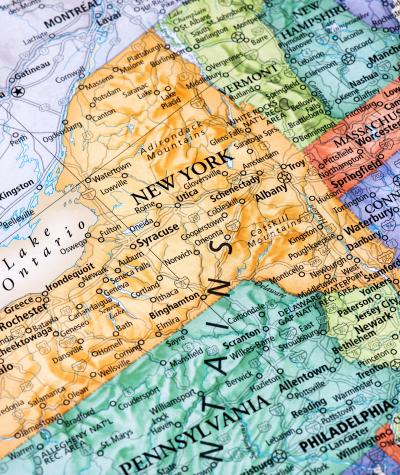The New York Court of Appeals, the highest court in the state, has struck down congressional maps drawn by the New York legislature in part for violating the New York Constitution’s rules against partisan gerrymandering.
Campaign Legal Center (CLC), joined by nonpartisan good government group Citizens Union, filed an amicus brief, which explained that gerrymandering is directly at odds with a well-functioning democracy and the New York Constitution, whether done by Democrats, Republicans or any other party.
When given the opportunity, politicians from both parties engage in extreme partisan gerrymandering to divide voters into districts that serve their political interests instead of the interests of voters.
New Yorkers recognized these harms and, in 2014, voted to enshrine in the New York Constitution an explicit prohibition against partisan gerrymandering, which banned maps drawn, “for the purpose of favoring or disfavoring incumbents or other particular candidates or political parties.”
CLC and Citizens Union urged the New York Court of Appeals to apply that explicit ban on partisan gerrymandering and invalidate any maps that it found were drawn for the purpose of favoring or disfavoring any political party.
The court, respecting the will of New York voters, did just that. After finding the maps to be drawn with partisan purpose, the Court of Appeals gave proper credence to the state constitution by declaring them unconstitutional.
The process in New York — from voters amending the constitution to a court striking down the partisan gerrymander — should provide a roadmap for other states to follow.
Voters in states across the country often have the right to take to the polls to amend their state constitutions just like voters did in New York. The outcome of the constitutional amendment in New York shows us that using this mechanism to prohibit partisan gerrymandering in your state can be powerful.
But it's not just voters that have something to learn from New York, state courts should take heed too.
Where voters have already made their will clear — like Florida voters did in 2010 when they passed the Fair Maps Amendments, which similarly outlawed partisan gerrymandering — state courts ought to honor the will of voters and properly enforce the prohibitions on partisan gerrymandering in their state constitutions.
The maps we draw today set the foundation for the next decade, so it is imperative that we have fair maps to ensure voters have an equal say in our democracy and communities have equal access to resources like schools and hospitals.
When the U.S. Supreme Court recklessly declared that federal courts could not address cases about partisan gerrymandering, state-level efforts to outlaw partisan gerrymandering became more important than ever.
The decision from the New York Court of Appeals demonstrates how these efforts can succeed. Now, other states must follow suit, respecting voters’ right to live under fair maps and have an equal voice in our democracy.

